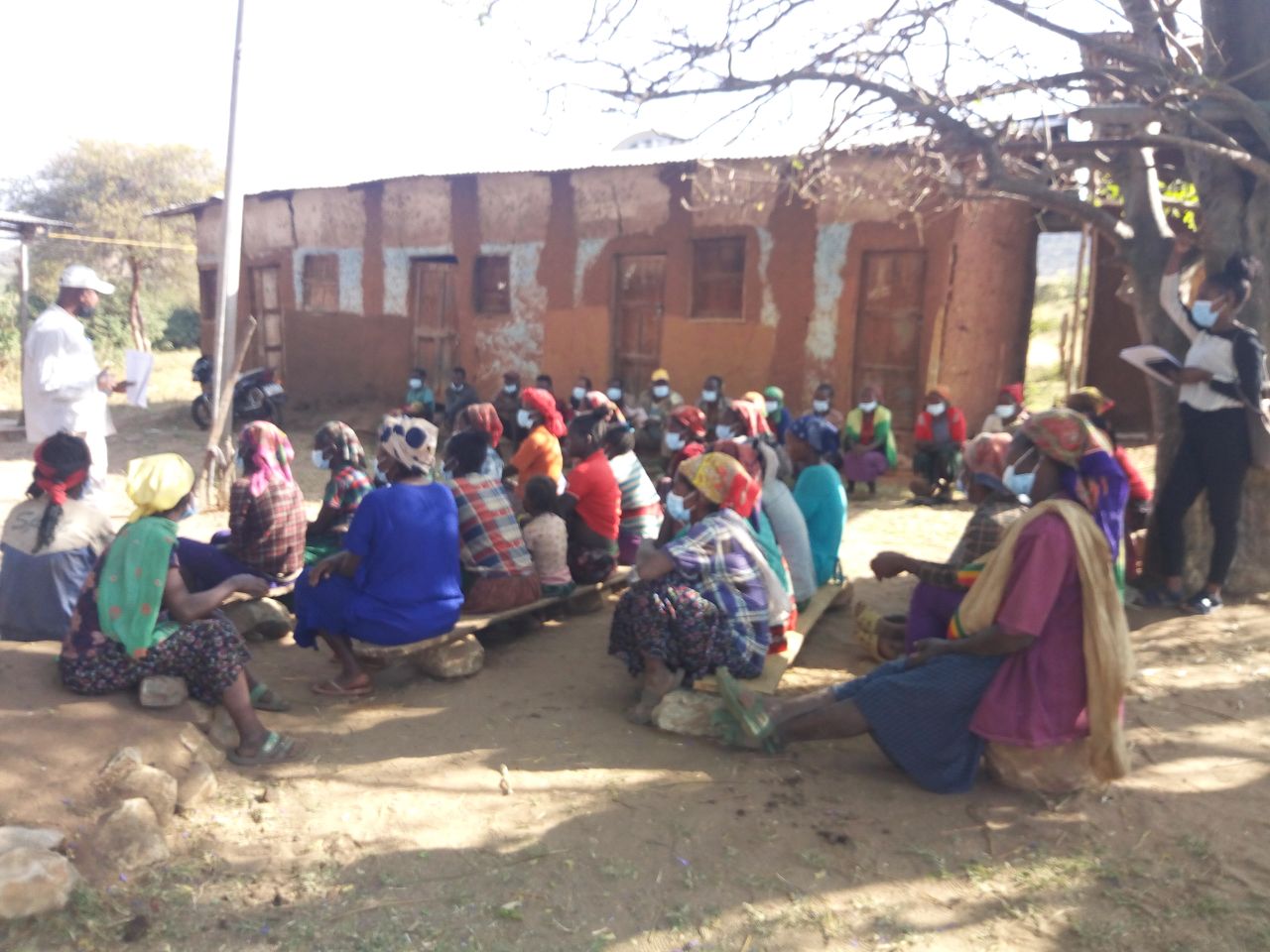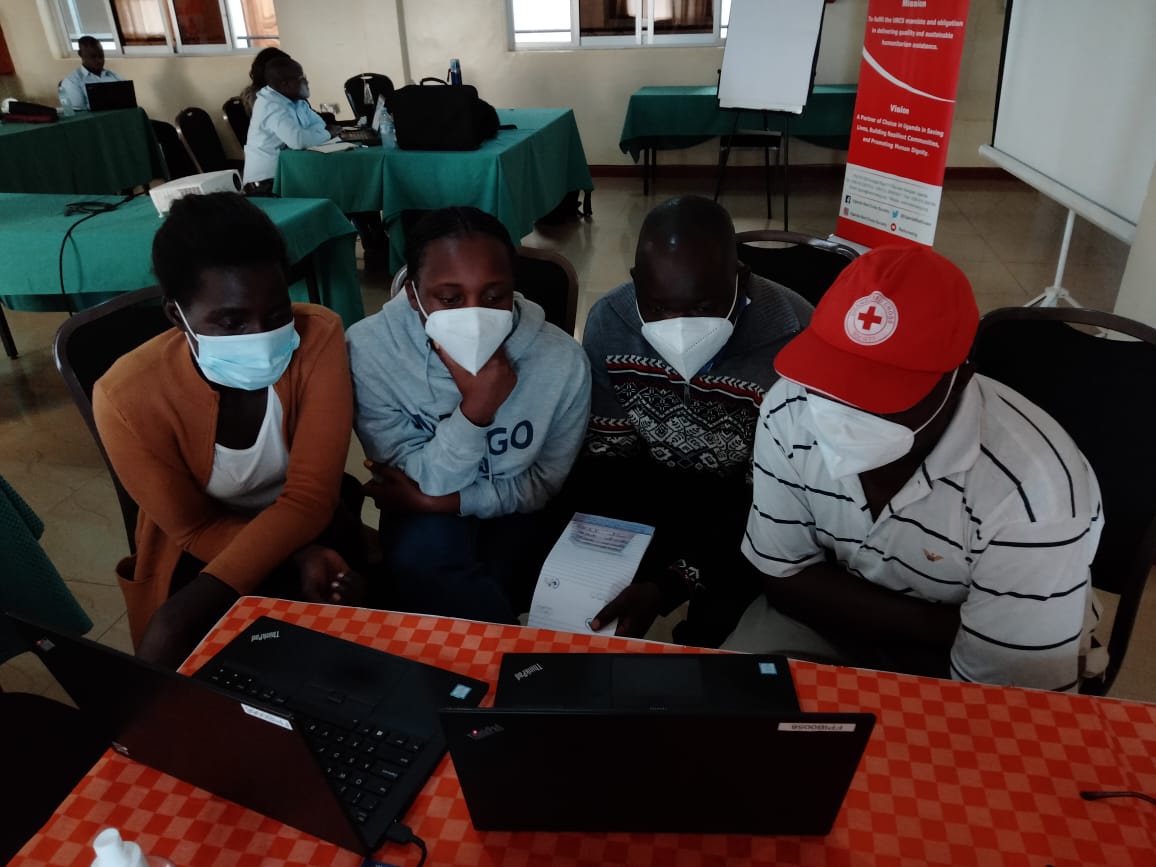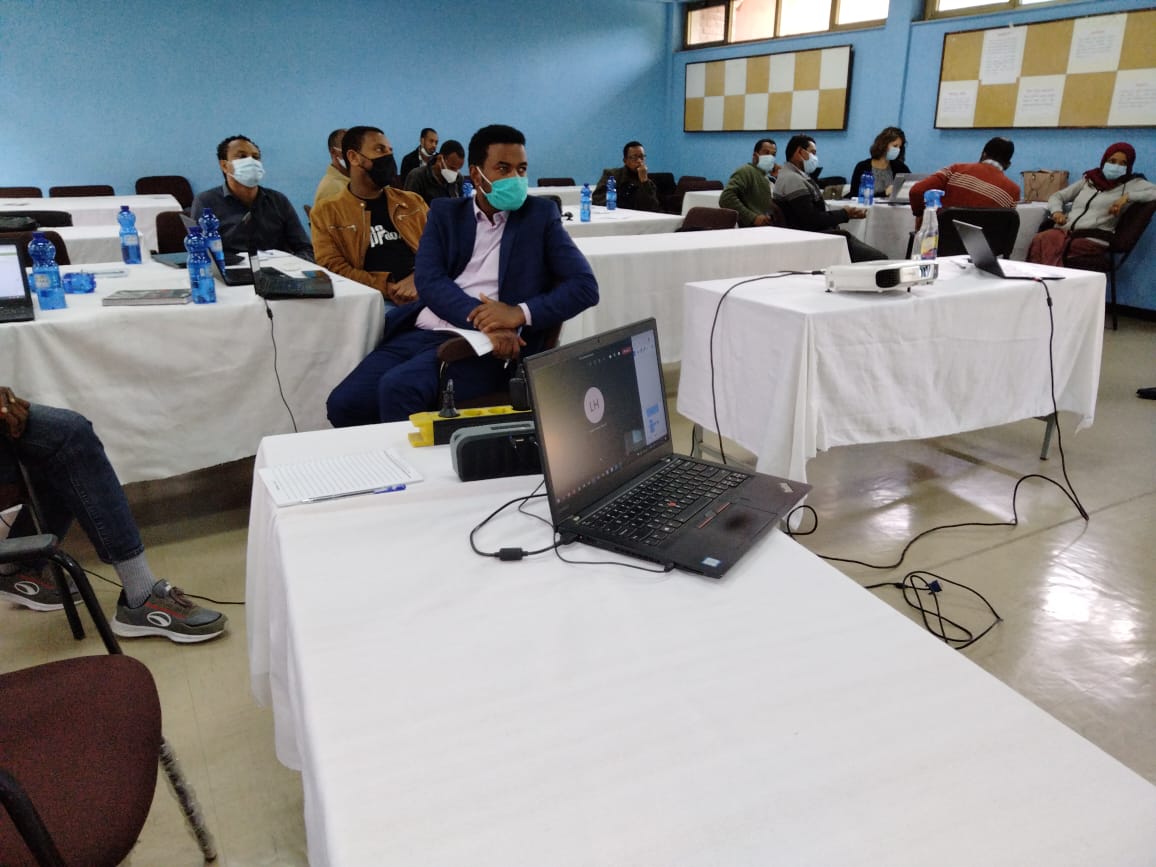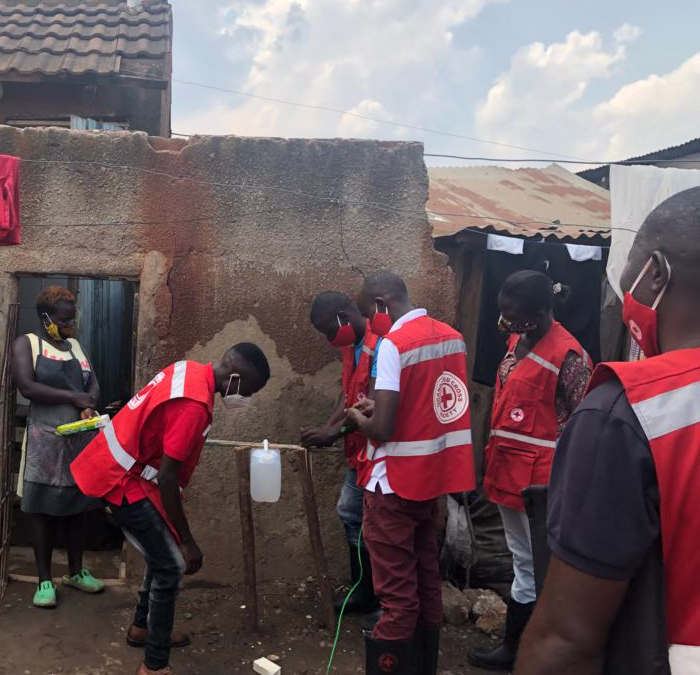As we received a question during our mid-term review about the impact of COVID-19 on the implementation of the Skybird Programme, we wanted to answer this question in a bit more depth through this post.
Part of a 5-year capacity building program, the Skybird Programme includes a lot of direct capacity initiatives which require in-person exchanges, such as the development of a Theory of Change (ToC) for the WASH sectors within Ethiopia Red Cross and Uganda Red Cross; trainings on M&E, procurement & financial management as well as PGI and other cross-cutting themes. While the micro projects provided the National Societies and their branches an opportunity to implement innovative programing as part of hands-on learning, all those initiatives as well as the micro projects were planned and based on the assumption to hold in-person workshops and trainings for staff, volunteers and beneficiaries alike. Naturally, all of those were affected by a global pandemic that no one could have foreseen.
COVID-19: the Disruption
The Programme commenced very well with the initial trainings being undertaken, followed by ideation workshops for the 1st cycle of the micro projects. As the Programme rolled off into 2020, the Covid-19 pandemic started with the first case being reported in both Ethiopia and Uganda in March 2020. The ensuing preventive measures which included total lockdowns were enforced in all the countries where the Programme was being implemented at the time (Ethiopia, Uganda, Kenya and Rwanda). This was a major disruption to the usual way of working, resulting in Programme activities being delayed or cancelled completely.
…more Disruption
As the pandemic unfolded the Programme team could not move freely to undertake the planned activities. In Europe, where the pandemic hit hard, the imposed total lockdowns negatively affected the delegation staff with some of our staff having to return home as no one was sure how the situation would develop. Movement of the delegation staff in the region also was curtailed, hence the required close support to the National Societies was disrupted as the usual in-person assistance could not always be provided. On the other hand, understandably National Societies changed priorities and redirected the resources to respond to the pandemic. This included the Skybird core staff as well as reallocation of some of the financial resources to support the response efforts.

All the Branches and project teams were eager to successfully implement their micro projects and put their ideas into practice but of course, disruptions also happened there as the project teams were unable to hold meetings and workshops with beneficiaries as planned. The situation took a toll on overall energy levels as everything and everyone was ready but the situation prohibited field work (see also the energy level graph in this post).
Yet, with delays and all hardships working against our common plans, we can say that the majority of micro-projects managed to conduct most of the activities after all and successfully finish their projects.
Some micro projects had to be pushed into the 2nd implementation cycle, but those delays are not attributed to the pandemic. Changes could also be observed which would not have been a focus of the Programme if it weren’t for the extraordinary situation we found ourselves in.
What changed?
As the pandemic evolved and the Programme team as much as the world began to realize that this will not be over soon, new ways had to be found to still deliver on the planned activities. Therefore, innovative approaches to work started being rolled out. One of the major revolutions was the working from home model with teleconferencing taking the center stage as the main means of connecting teams remotely. Some of these approaches had been employed prior to the pandemic but the pandemic acted as a catalyst that truly made these approaches and applications a normal day to day model of working.
The Skybird team took advantage of the new opportunity and started adjusting the activities to be undertaken virtually. Some of the first direct project capacity building activities to use this model were the TOC workshops which adopted a hybrid (virtual/in person) approach to undertake the strategy development (see blog post on this here), this was followed up with the ideation workshops which also benefited from this hybrid modality (read more here).
As actual exchange visits between micro project implementers were impossible as well, the Programme team came up with the concept of weekly virtual field visits. This format might even be regarded as a benefit as opposed to the original plan as it allowed all implementers to be present, learn from and engage with each other.
It also allowed for capacities to be developed further in this digital workspace, particularly for the micro project teams who were not that familiar with those virtual options at the beginning.


Final Reflections
It has been said that ‘change is the only constant’ and truly this is what we experience during this pandemic. The known “normal” was disrupted and the world had to evolve in order to adopt to this new ecosystem. Humanitarian programs were among the 1st to adopt and lead the way in taking unconventional approaches to work. The Skybird Programme is proud to have taken the lead and to have actively participated in quick adaptation of new modalities which included the hybrid workshop modalities as well as documenting the innovations, failures and leanings in the process of adopting those new methods.
The Skybird Programme has experienced significant delays but is in the process of recovering as the new normal takes root and the pandemic eases down and flares up every now and again with new virus variants. While the situation is still very demanding, the team hopes that with the lessons learnt we shall be able to deal with the resulting challenges and complete the Programme in a different but maybe even better form than initially planned. The most important lesson for the whole Skybird family is to stay flexible and adaptive, always anticipate changes that are disruptive in nature and stay open for rapid adaptation.
